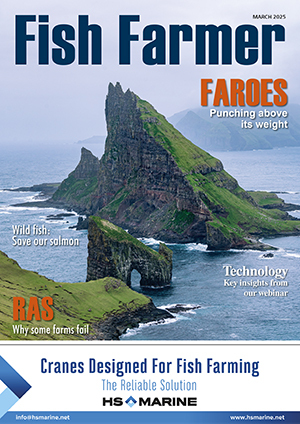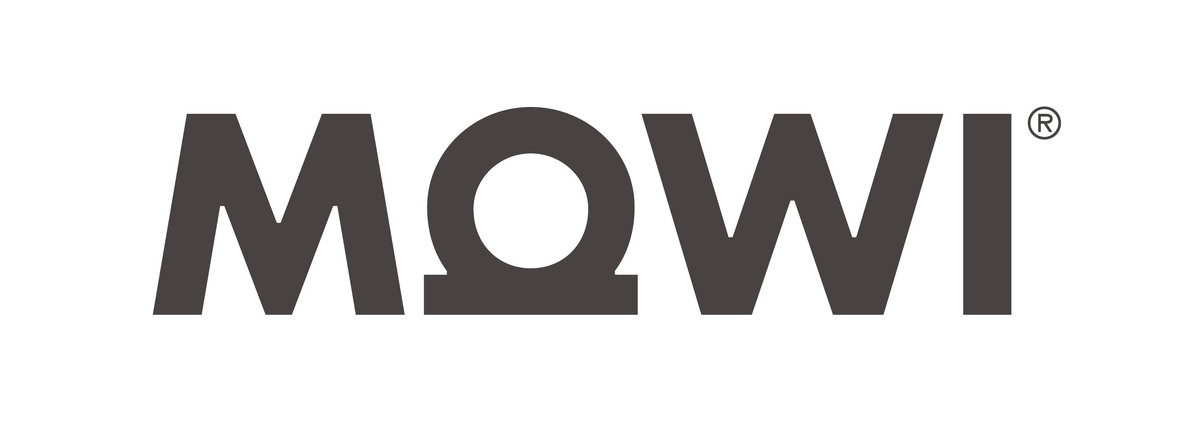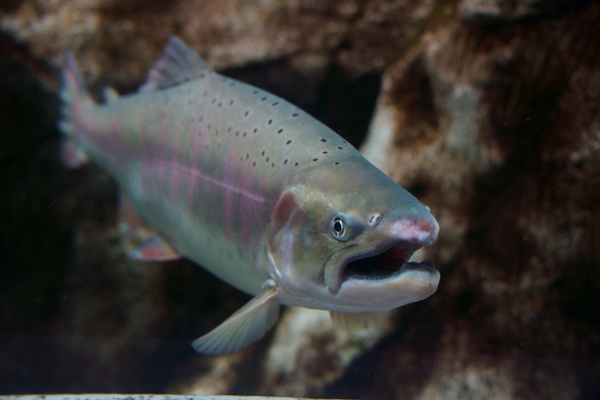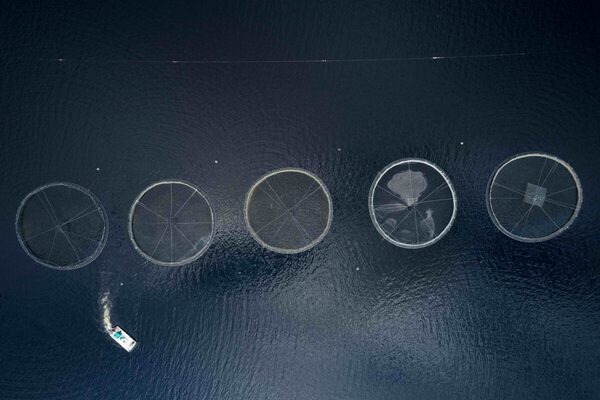Pioneering innovation at Mowi Scotland
Mowi is committed to farming Scottish salmon sustainably, respecting the environment and communities in which we operate.
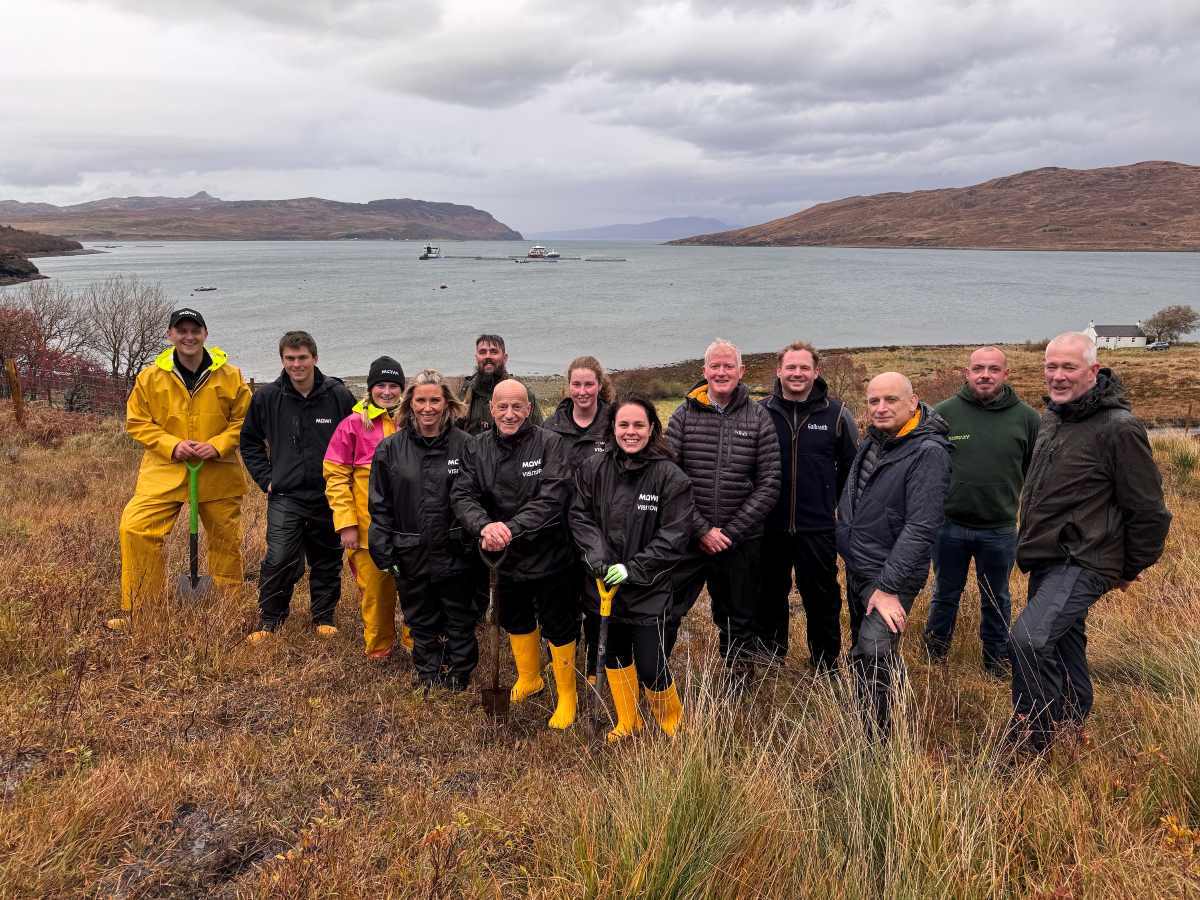
2024 has been a year of fast-paced innovation for Mowi Scotland, where we have harnessed technology to further improve how we farm Scottish salmon in a marine environment that is changing and bringing new challenges frequently. This innovation has increased the diversity of the industry and there has never been a better time to start a career in aquaculture.
Ben Hadfield, COO Farming Scotland, Ireland, The Faroes and Canada East at Mowi, said: “Tough farming conditions delivered by this changing environment create more need for resilience, innovation and creative solutions. They also, more than ever, demand the best teams in place to drive all this forward.
“We have such a great crew in Mowi Scotland and it has succeeded enormously this year in improving fish health and profitability.”
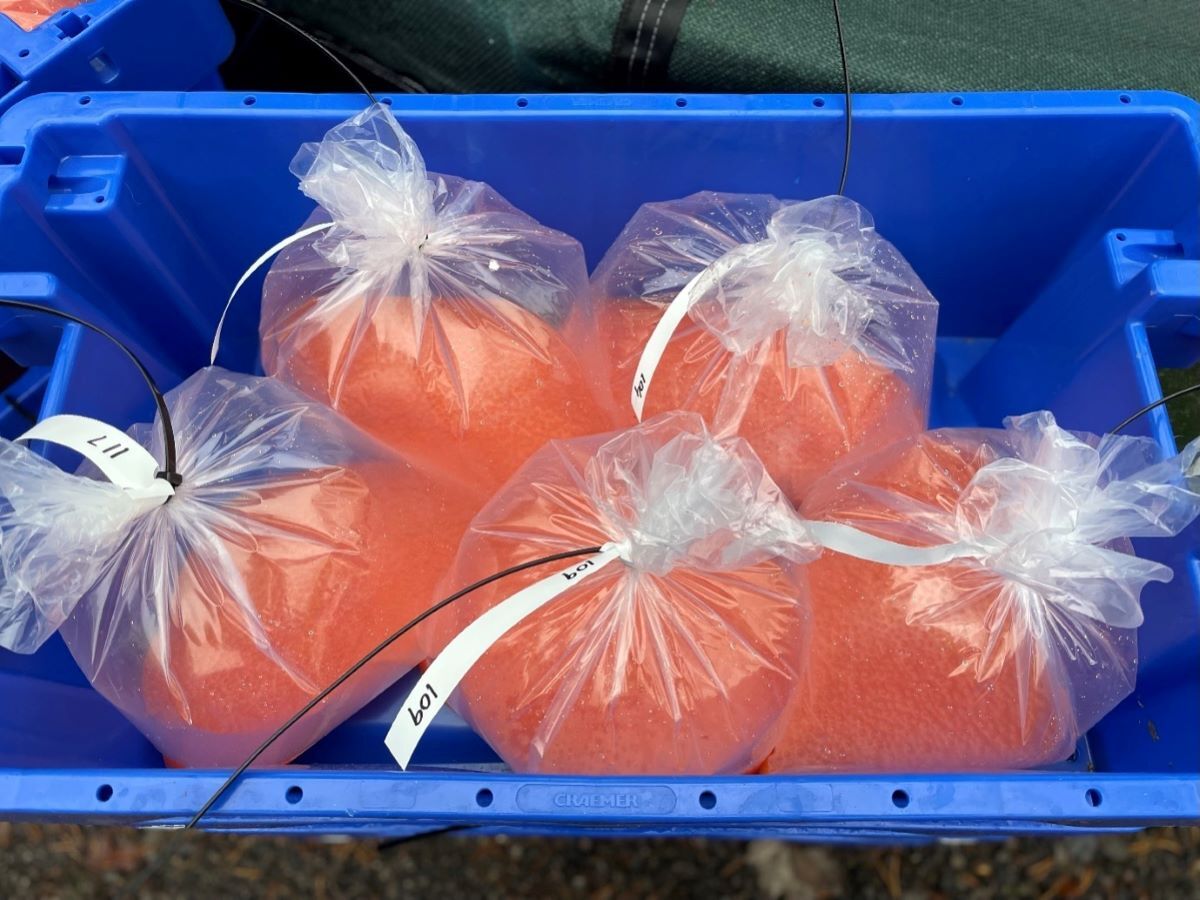
Broodstock
Innovation
From egg to plate, at the very beginning of the lifecycle, having the best quality eggs is crucial for the growth of salmon. This year, we successfully produced the first eggs from Scottish broodstock in 20 years.
Massive data of fish quality and survival is definitive and, when looking at all parameters, it’s clear to see that the Mowi strain of Atlantic salmon clearly stands out as superior.
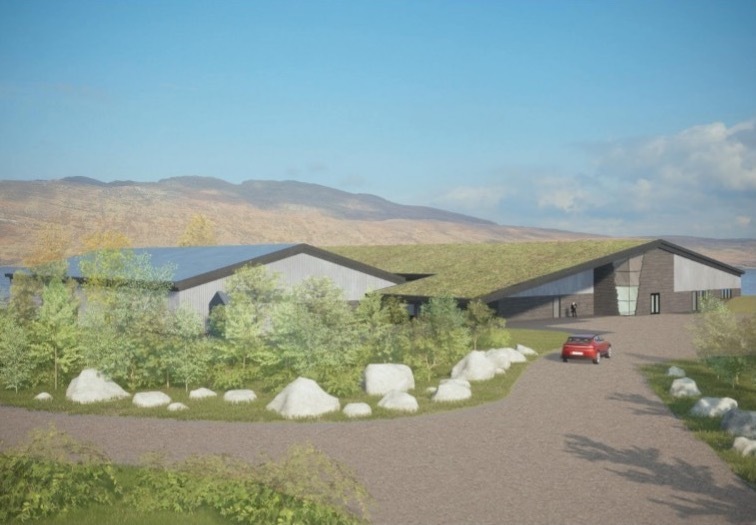
Artist rendering of broodstock facility at Ardessie
To prepare for a made-in-Scotland broodstock programme, the next generation salmon were taken in 2021 from Mowi nucleus in Ireland and raised at seawater farms in Scotland. After a few weeks held in freshwater, Mowi breeding experts checked the salmon for readiness to spawn and the first ripe fish were stripped of their eggs.
A bespoke broodstock facility at Ardessie is being built which will use the latest recirculating aquaculture system (RAS) technology to enable use of temperature and photoperiod regimes to produce early and late season eggs – a key element of Mowi’s freshwater smolt production plan. We look forward to opening this facility in 2025.
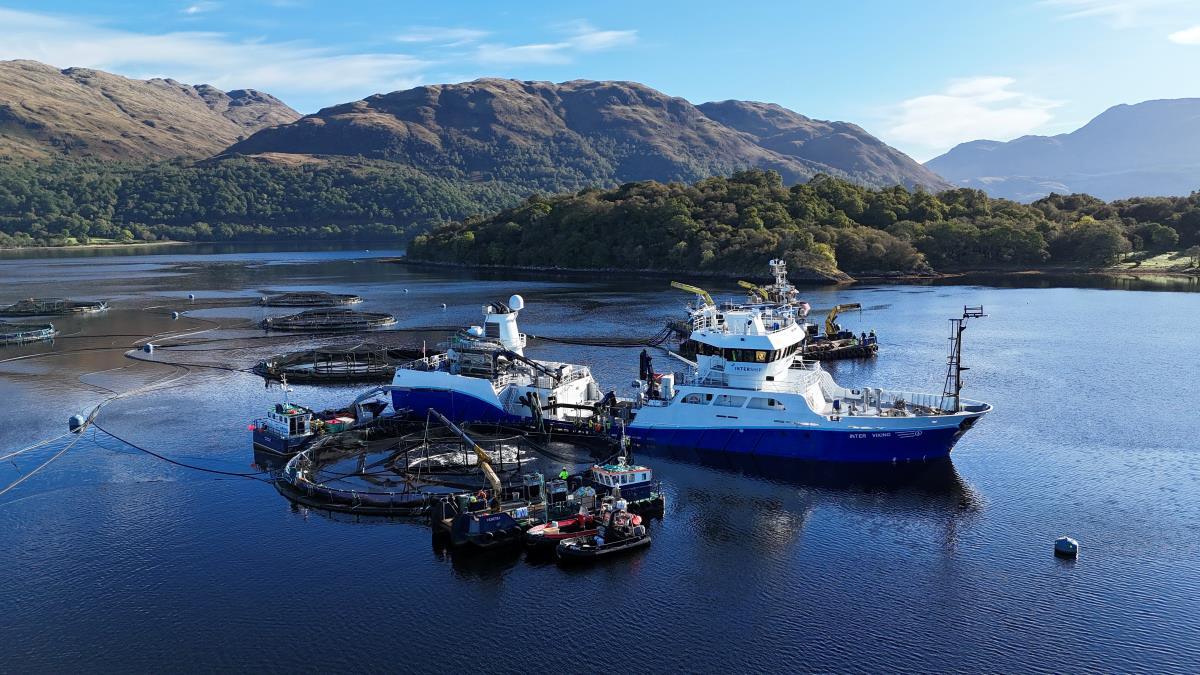
Loading at Etive
Post smolt strategy
2024 has also seen significant progress in our post smolt strategy, as evidenced at Loch Etive where we are pioneering best practice in aquaculture.
Having been granted consents to grow post smolt salmon in Loch Etive in 2023, the first post smolts were transferred to Muck this year.
Previously, individual sites at Loch Etive were fallowed at different times but Mowi’s new production plan includes six-month growth cycles to enable farms to synchronise fallow periods throughout the whole loch system. This break in production, combined with the loch’s naturally brackish waters, has helped to maintain a low sea lice population in Loch Etive.
Not only are we proving that there is a sustainable alternative to land-based post smolt production, but we are also using new sea lice modelling to achieve greater monitoring and control of sea lice, combined with a new approach to fallowing, all of which is resulting in healthy post smolts ready to continue growing at sea.
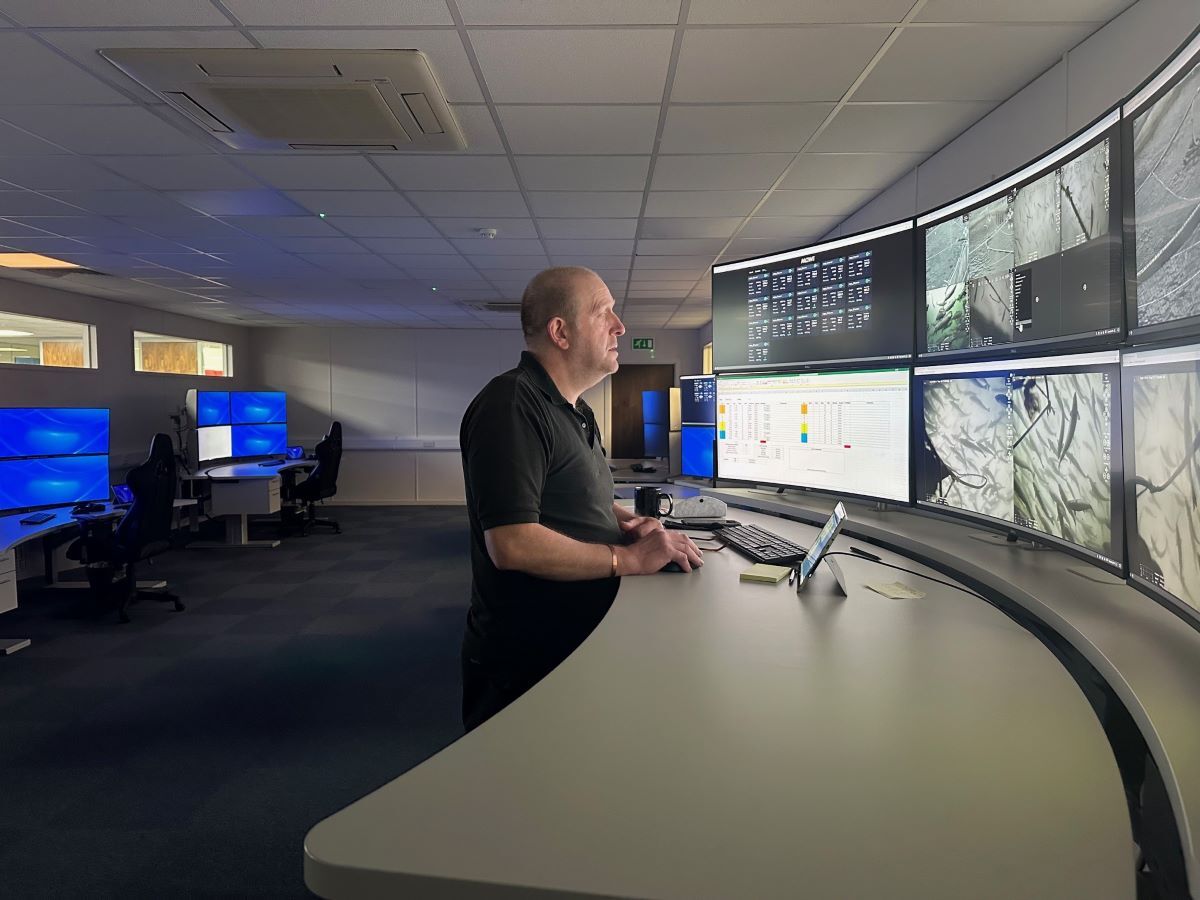
David Horne at Remote Operations Centre
Remote Operations Centre
This year, we opened a Remote Operations Centre (ROC) at Mowi Scotland’s Farms Office in Fort William. This ROC allows seawater farm sites to be fed from one centralised location to ensure that feeding strategies are optimised. It means that feeding regimes are consistent, ensuring that fish can be fed and monitored at all times, including during poor weather when conditions are too dangerous for feeding by staff on site.
Nine farms are being monitored and fed from the ROC, set to increase to 11 by the end of 2024. Over time, it is hoped that all of Mowi Scotland’s mainland seawater farms will be fed from the ROC.
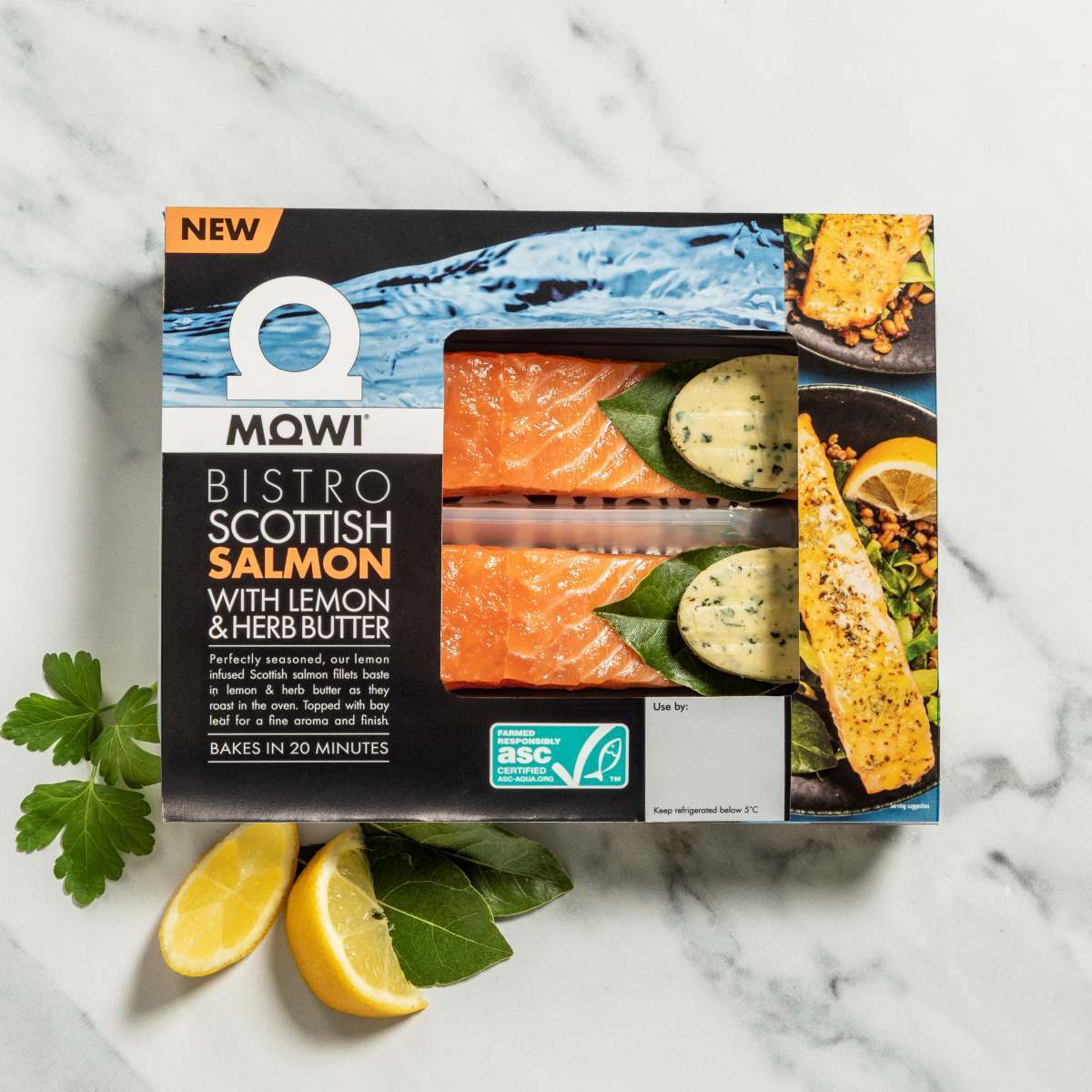
Mowi Bistro with lemon and herb butter
Transformation of fish processing at Blar Mhor
The expansion of Mowi’s Blar Mhor salmon processing facility in Fort William is almost finished. When complete, the upgrade, which includes the installation of state-of-the-art robotic technologies for handling and grading salmon, will enable the facility to process and pack 200 fish per minute, and increase plant capacity to >80,000 tonnes annually.
This investment will secure the long-term future of the plant in Fort William and incorporates market-leading innovation and technology that will put Mowi at the forefront of salmon processing.
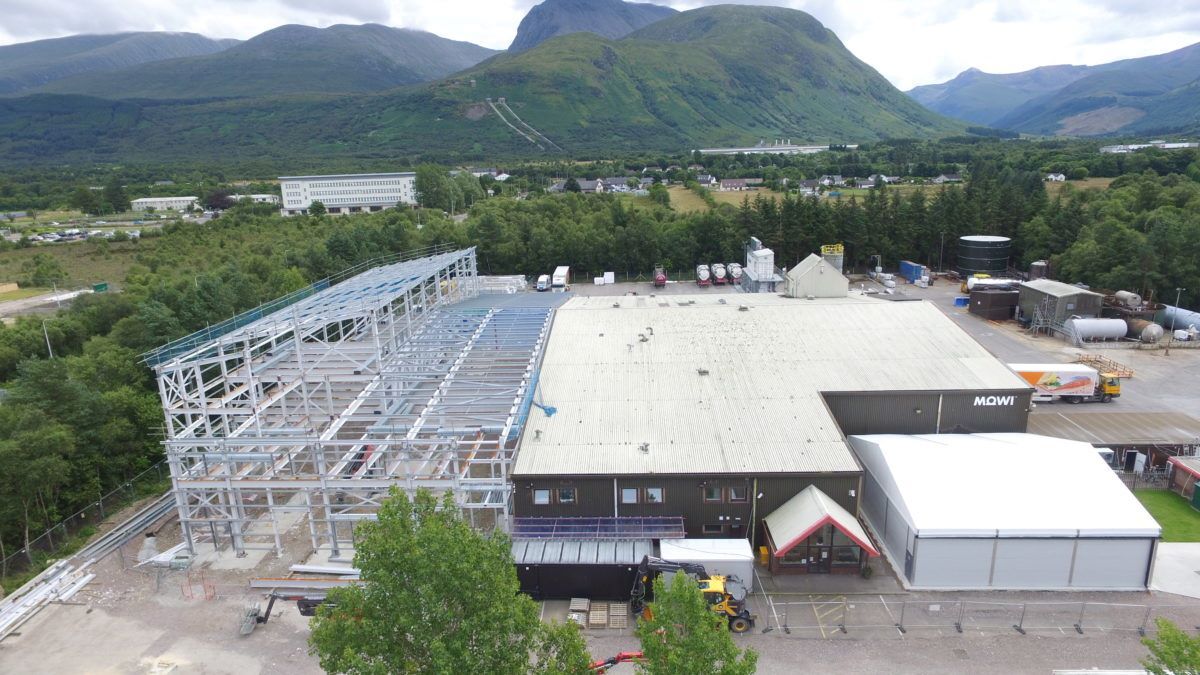
Mowi’s Blar Mhor salmon processing facility in Fort William
Innovating the category
The continued success of our award winning MOWI salmon has seen new innovations helping to grow the category and liven up mealtimes for people across the UK.
The new MOWI Ready-to-Eat BBQ Slow Roasted Scottish Salmon Fillets and Bistro Scottish Salmon Fillets with Lemon & Herb Butter were particular highlights of 2024.
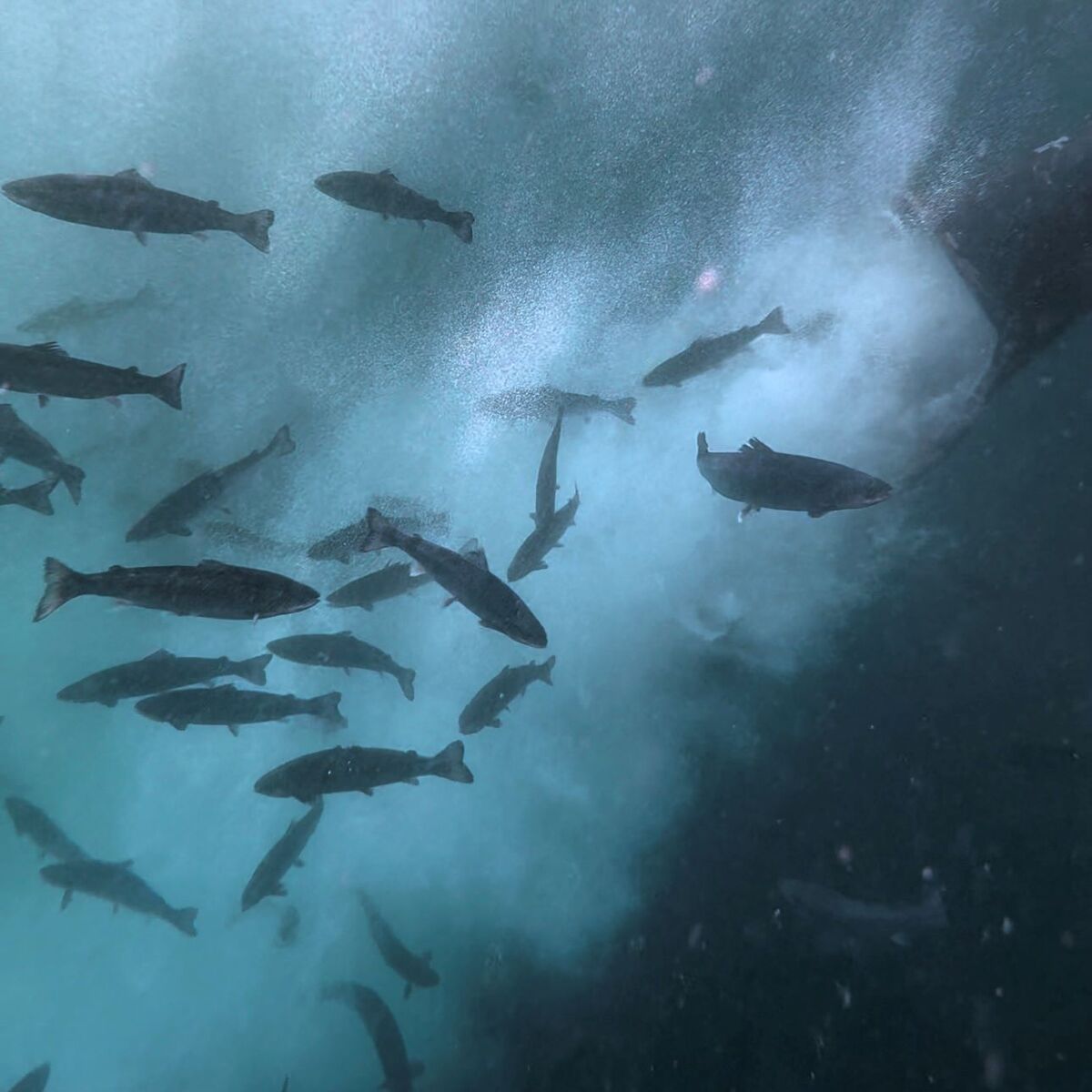
Unloading at Muck
Sustainability
We are privileged to farm in some of the most remote and rural areas of Scotland and we never take this environment for granted. In 2024, we have undertaken significant projects to rejuvenate the land and the sea for years to come.
On the Isle of Skye, the first 50 of 112,000 trees have been planted as part of a new native woodland being established at Maol Ban. Ultimately, 112,000 native broadleaved trees will be planted across 102 hectares of land near to our Caol Mor seawater farm on the north side of Loch Ainort.
This project will produce real outcomes that support Mowi’s strategic sustainability programmes and policies for protecting nature and biodiversity, contributing to tackling climate change.
The project is aligned to Scotland’s Forestry Strategy which seeks to increase woodland cover and contribute to climate change mitigation by reducing greenhouse gas emissions through carbon sequestration. The woodland is estimated to have the potential to sequestrate 38,616 tonnes of carbon dioxide over the next 100 years.
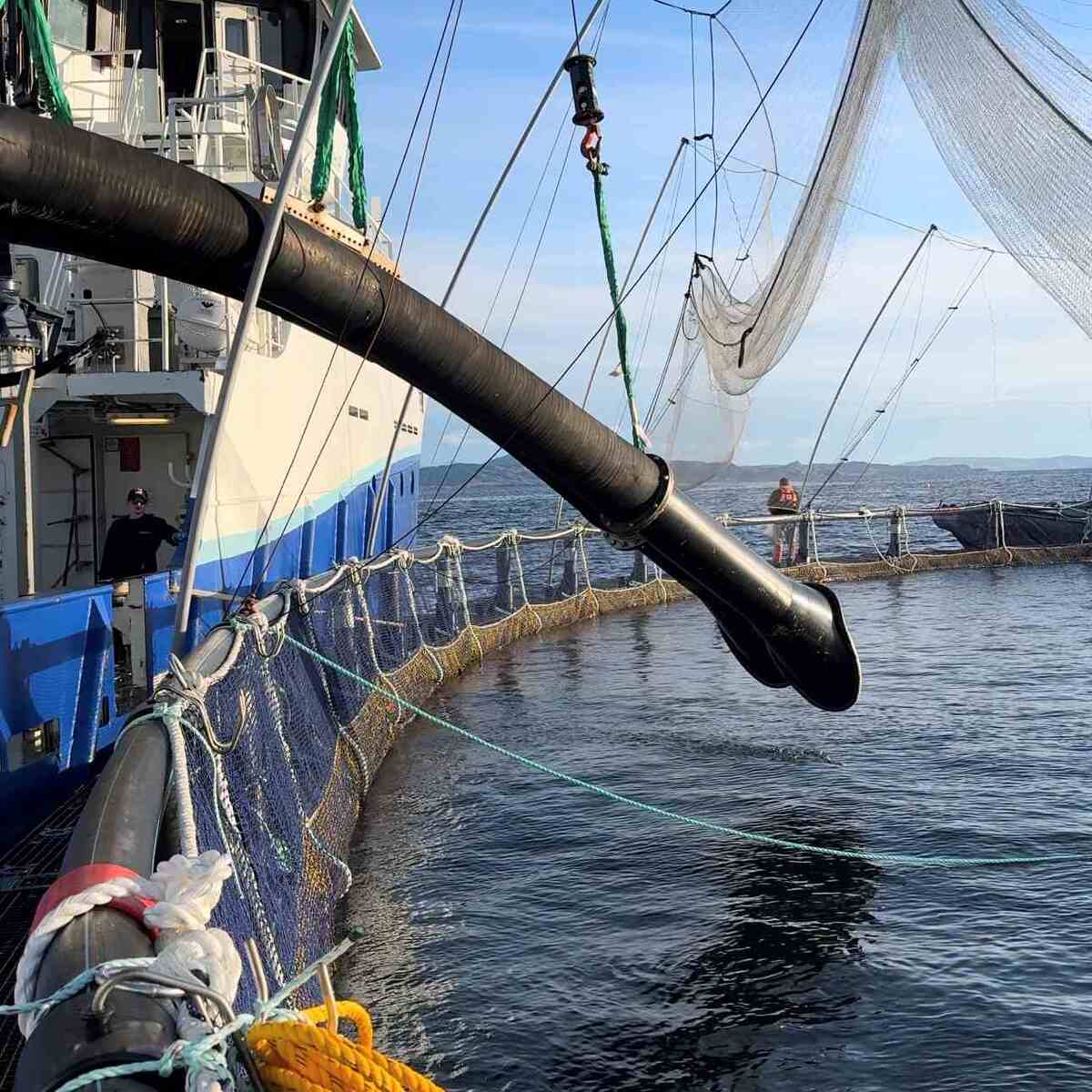
Preparing for the unloading at Muck
Over on the mainland at Loch Ewe, a three-year post-closure environmental study, believed to be the first of its kind in Scotland, was undertaken around Mowi’s former Isle of Ewe fish farm on the north west coast of Scotland.
Even though the fish farm industry has been going for 50 years in Scotland, the data on recovery of sites post decommissioning is very limited. The aim of the three-year Isle of Ewe post closure monitoring project was to assess the trajectory of benthic recovery upon cessation of farming operations.
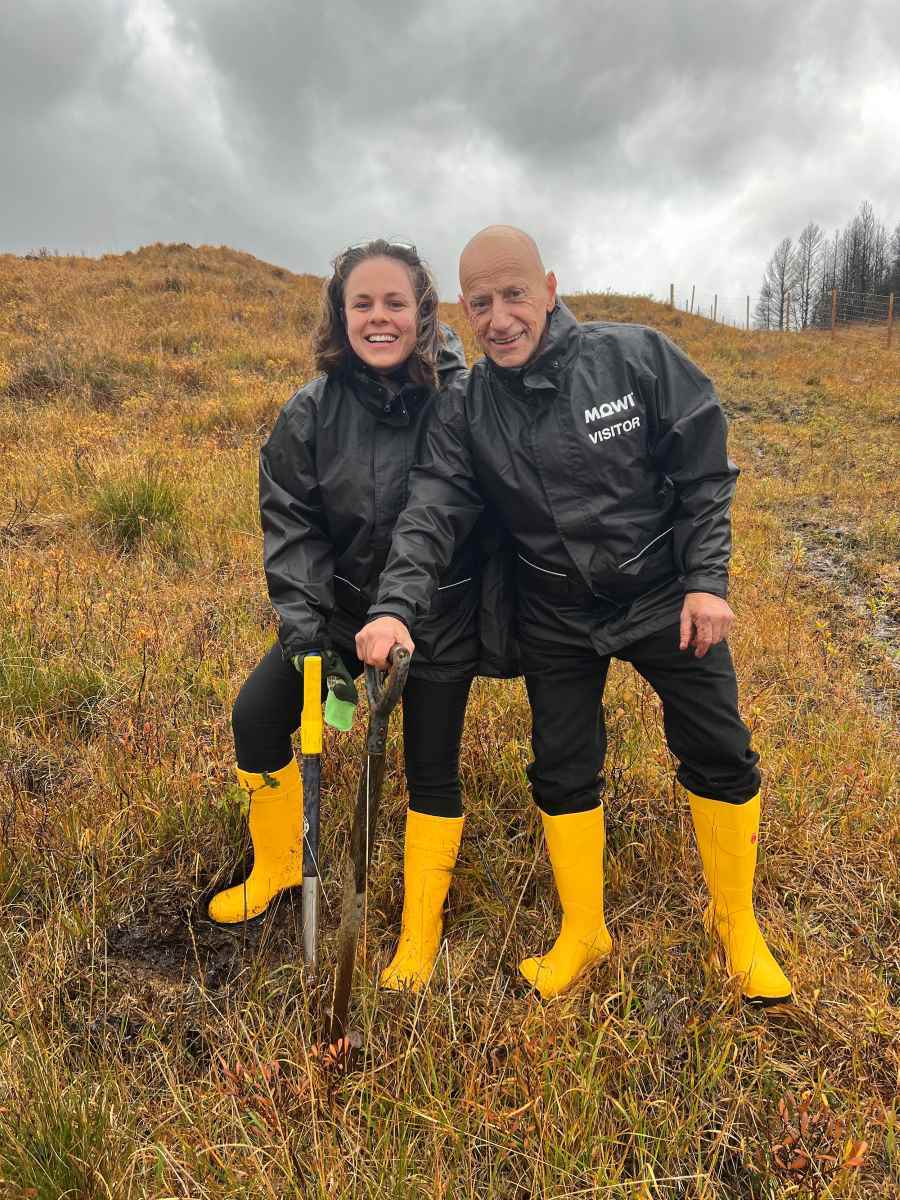
Kate Forbes MSP and Councillor John Finlayson at Maol Ban
In 2020, monitoring confirmed that the Isle of Ewe fish farm complied with all seabed environmental standards prior to its closure. This was the first monitoring survey conducted by Mowi under the new regulatory approach, incorporating a tighter environmental standard for the spatial extent of mixing zones, that was introduced by SEPA in 2019.
In 2020, 67% of sampling locations met the conditions for ‘Good Ecological’ status. In 2021, this percentage increased to 80%; in 2022, it increased to 93%; and in 2023, 100% of sampling locations met the conditions for ‘Good Ecological’ status.
There are many misconceptions about the environmental impact of the aquaculture industry. However, this project provides solid evidence that seabeds can recover upon cessation of fish farming operations.
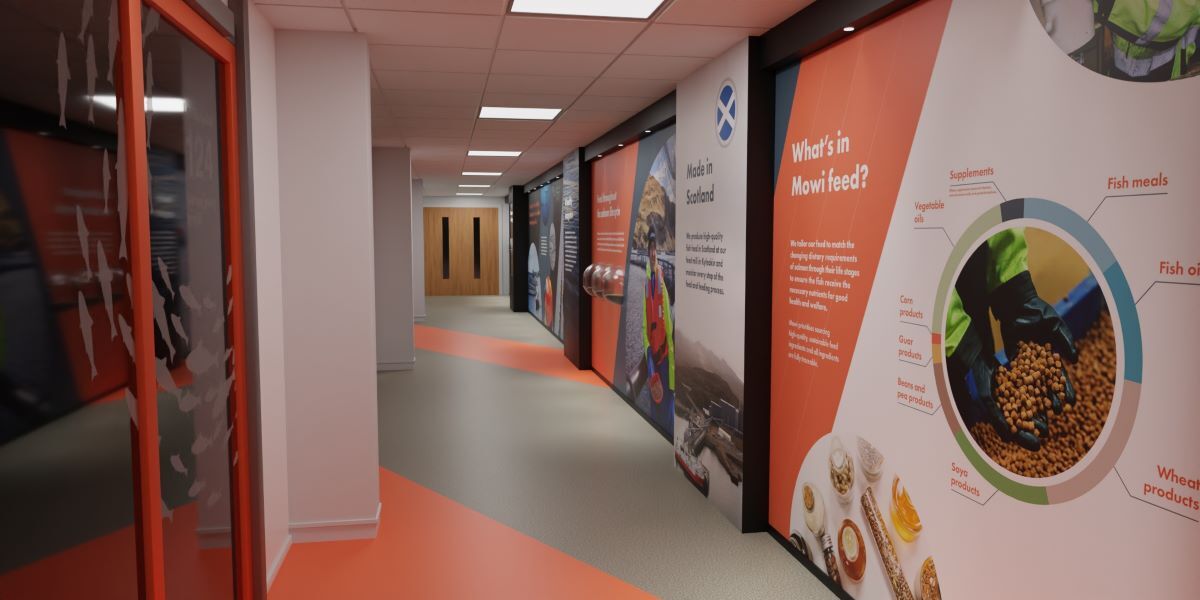
Inchmore Hatchery visitor experience
Education
Aquaculture continues to attract critics but that is often caused by misinformation or simply a lack of knowledge. At Mowi, we believe we have a responsibility to educate all stakeholders, which is why we have invested in a visitor experience at our hatchery in Inchmore, already the starting point for the many tours we host each year for customers, media, politicians, schools and colleges.
This visitor experience showcases how the industry is helping to feed an ever-increasing world population in a sustainable way, continually adapting and evolving to improve itself and the end product.
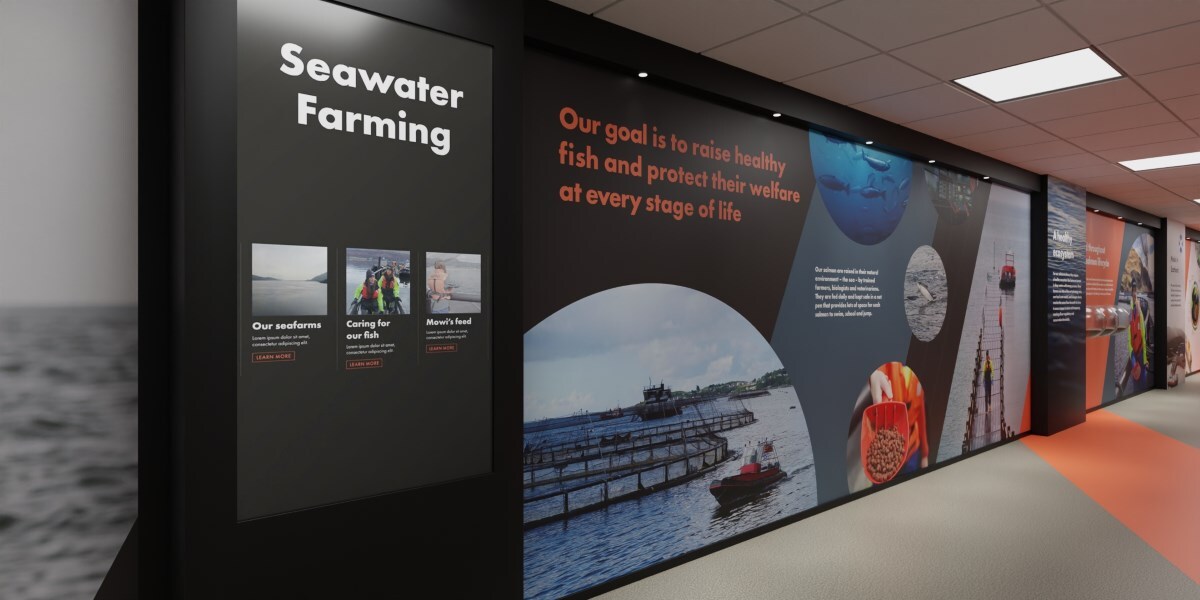
Inchmore Hatchery visitor experience
Using bold static graphics and unique sensory displays, as well as interactive digital touchscreens featuring a series of short films that delve deeper into the Mowi story, the experience will show people the good work we do to produce a healthy and sustainable home-grown product in the UK.
We continue to visit schools and host students at our farms and other operations to show them the many diverse career opportunities available to them, with the increased emphasis on science and technology in our industry, the options are increasing all the time.
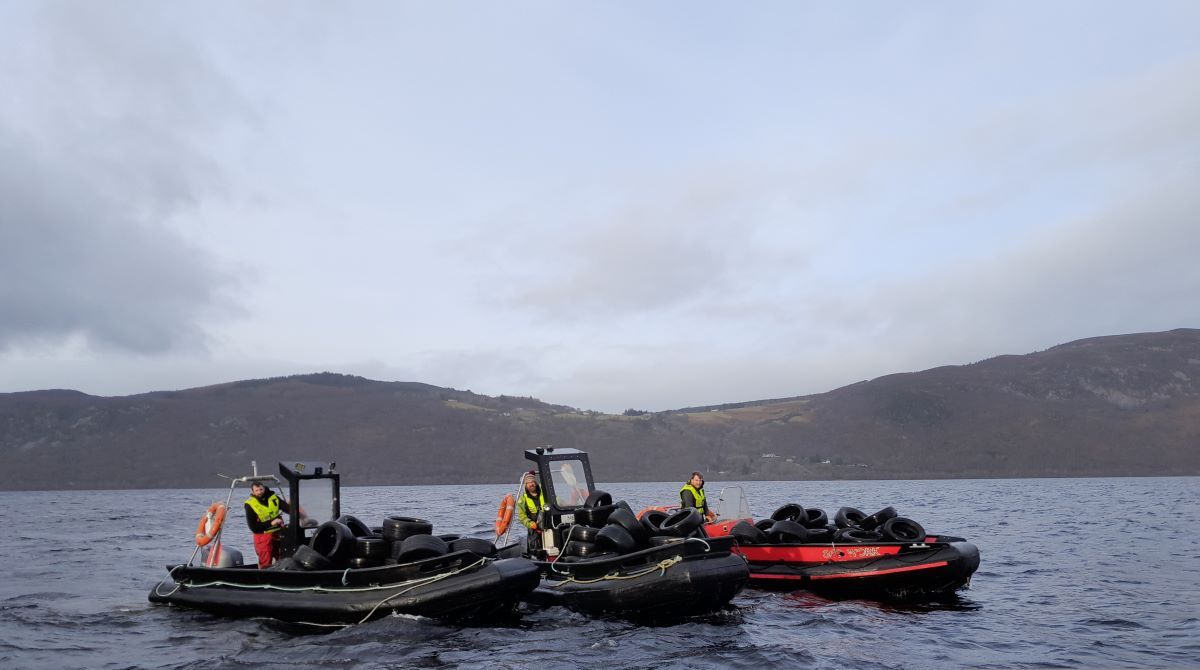
Loch Ness clean up
Community
Mowi works hand-in-hand with the communities in which we operate. Often it is our employees who are also volunteering for HM Coastguard or the Fire and Rescue Service, amongst others.
We do everything we can to be part of the community. Sometimes, the nature of our business means we can easily deploy our staff and resources when needed. It was our pleasure to provide the manpower and boats to access the shoreline at Loch Ness to remove 300 tyres that had been dumped on the banks. We even managed to repurpose 100 of the tyres as bumpers for barges and boats.
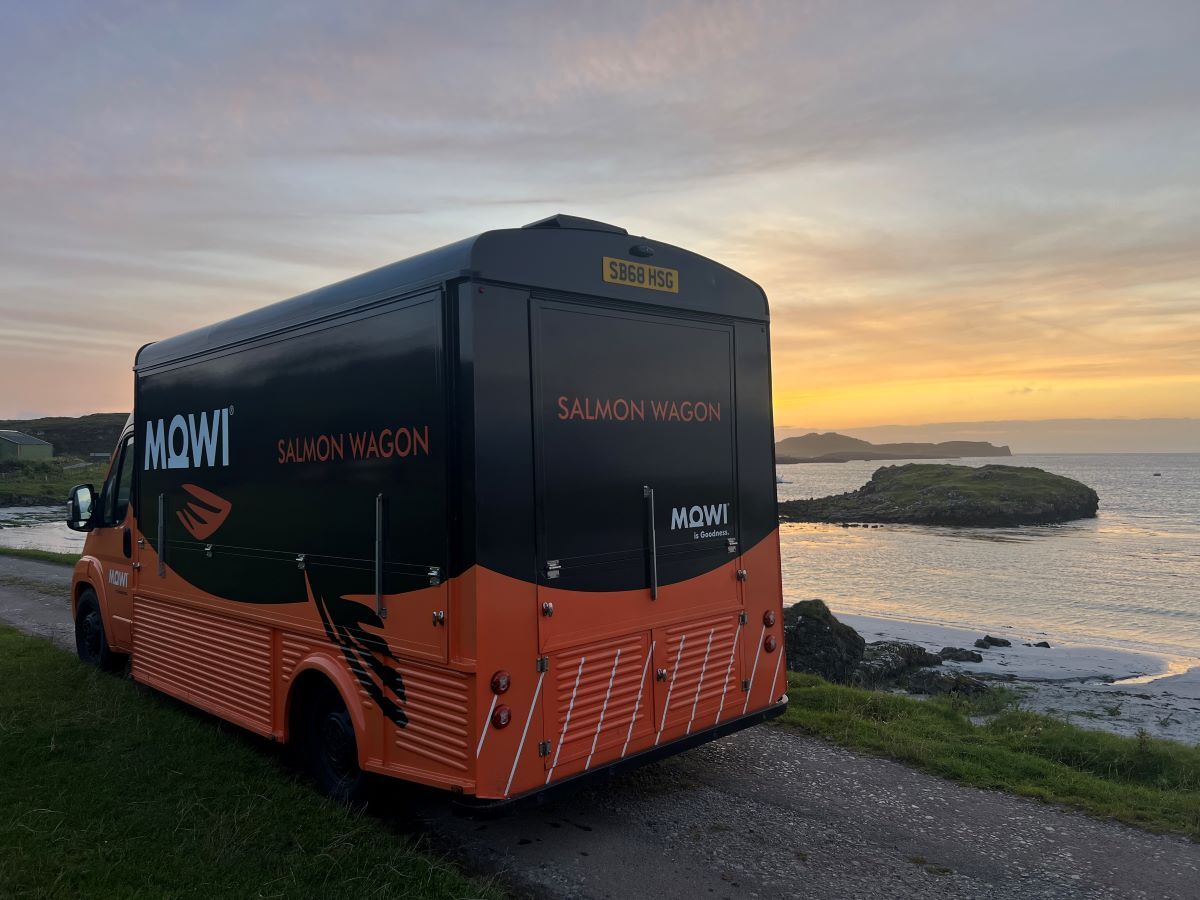
The Salmon Wagon
Mowi donates money, time and resources to causes that are important to our communities. Just one of our many community support initiatives is our now iconic Mowi Salmon Wagon which we take on the road to boost fundraising, raising over £20,000 for good causes to date.
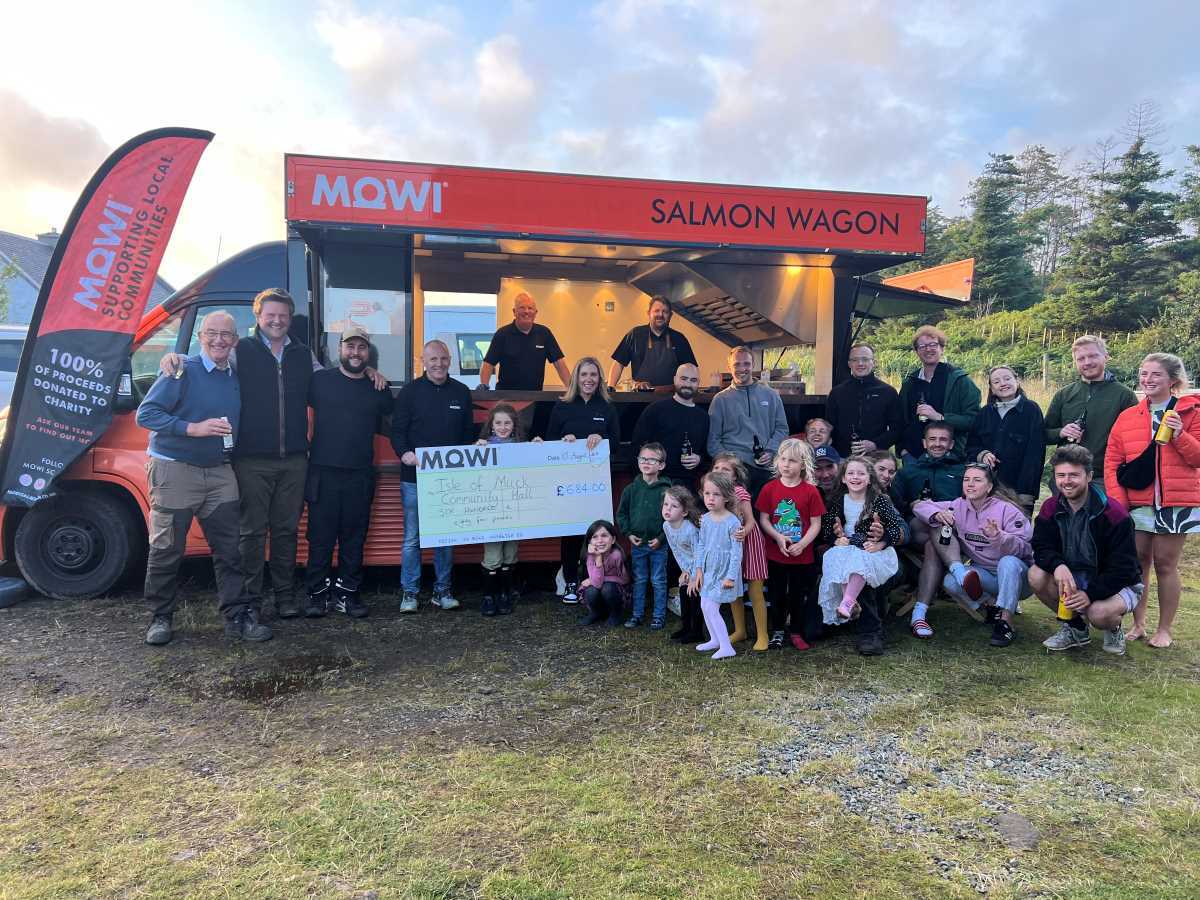
The Salmon Wagon at the Small Isles Games
We look forward to building on our progress in 2025.
